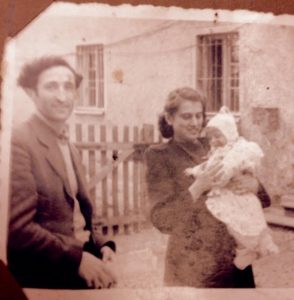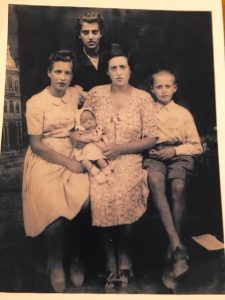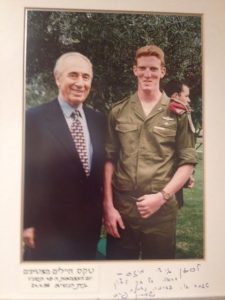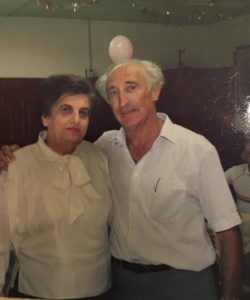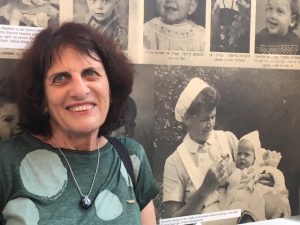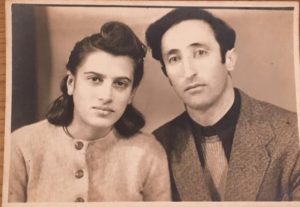The Mozes-Kahn Families
The Mozes-Kahn Families - written by Sarah Mozes-Kahn
In November 2002, I sat with my partner in the hall of the Cameri Theater while waiting for the play "Ghetto" to begin. As we flipped through the program, to my surprise I discovered a photograph of the original program of the play performed in Ghetto Vilna, according to it, and according to the diaries of Herman-Herschel Kruk (who was in charge of the ghetto library and hid his diaries within the library walls), Yehoshua (Joshua) Sobol wrote the play. At the time, the play was called in Yiddish "Der Mensch Untern Brick" (The Man under the Bridge) and was a popular comedy performed in the sad ghetto more than 40 times. On the list of players, I discovered the names of Gitel-Genia Shapiro and her husband Shabtai Bliacher. Gitel-Genia was my mother's sister. The beautiful Gitel, - a gifted pianist, ten years older than my mother - perished in the infamous Klooga camp in the swamps of northern Estonia. Her husband, Shabtai, a well-known playwright and actor in Poland, a close friend of the late Avraham Sutzkever, also perished in the same camp. My mother's younger brother, Lubke, was murdered during the first months of the ghetto.
The play ignited in me the desire to follow up the story of my parents and family members and what had happen to them during the war.
I arrived in Vilna, the city where my mother was born and raised, found the home where she was born and visited the schools where she studied. I walked across the train station where my mother walked and where my grandfather told her 'run away, my child,' adding 'I'll get along with the Germans.' I located the factories where she worked hard, went hungry, and there between Gorky and Astrakhan on the Volga River to Dushanbe and Andizhan, between Russia and Uzbekistan and Kyrgyzstan, I became acquainted with the colors, sights, landscapes and scents she had experienced.
I also followed my father's escape route - from Tauragė to Šiauliai and from there to Žagarė, on the Latvian border, where his mother - my grandmother – and his two sisters were murdered and are buried in a mass grave in the center of the town. Alone, my father continued on his way, crossing the continent, Bishkek and Samarkand till Bukhara, and from there to Khiva - where he enlisted with his comrades in a Lithuanian division, to avenge the loss of their families to the Germans.
I passed the blinding-white cotton fields, where my father and mother worked from morning till night to fill the quota that would allow them to win a starving portion of food at the end of the day. There, my father, badly wounded, and my mother came from the eastern front looking for the remainder of family members, and there, at the Tashkent hospital their paths crossed and they found love.
In Tashkent, my parents joined the Escape Movement organized by the remains of members of the youth movements from Latvia, Lithuania and Poland, and with courage and deception, smuggled Jews west to freedom during the day, and especially at night.
When the two decided to take advantage of the right of return given to the Poles and return to their country of origin, they rode in a circus carriage through Hanover to Munich, and in the great St. Ottilien Archabbey I came into the world.
There were always three of us, only the three: father, mother and I - their daughter, without grandparents, grandmothers, uncles and aunts; I never had cousins, but had a family - the family of my parents' friends created by the hardships of the road - mainly from the Escape Movement.
In Israel, my parents came to the Rama transit camp (near Rehovot) and from there to the Beit Lid transit camp, and got used to their new lives along with the howls of jackals at nights that sounded like injured babies, with a tent dripping in the winter, and the disinfecting smell of DDT that terrified my mother.
But here my parents fulfilled themselves –father, who had graduated from trade school in Lithuania, and mother, from trade school in Vilna, found their livelihood here, and were proud of me, their only daughter - a social worker – and, of course, of taking pride in their grandchildren. They worked, volunteered, rejoiced and loved life, with memories "from there" always in the background.

